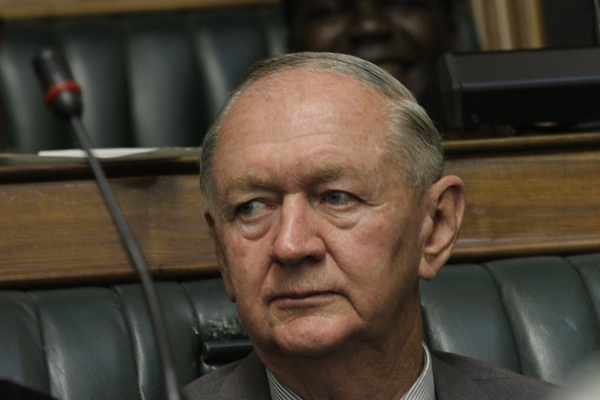Full contribution:
HON. CROSS: The Ministry of Finance and Economic Development, in Zimbabwe controls the budget. Mr. Speaker Sir, can we have some quiet. – [HON. MEMBERS: Inaudible interjections.] –
THE ACTING SPEAKER: Hon. Members, can we have order in the House. Earlier on, I have actually requested for those Members who are so anxious to talk, can you do the honourable thing to move outside of the House and do your business, then after you have finished you are so much welcome to come back. Please can you give chance to the people who would want to debate?
HON. CROSS: Mr. Speaker Sir, the Ministry of Finance and Economic Development in Zimbabwe controls a budget of about US$6b, that makes it ten times the size of Delta Corporation, ten times the size of T.M. Supermarkets, ten times the size of OK Bazaars Group, it makes it the single biggest financial institution in the country. Its assets exceed the combined assets of all the commercial banks in the country and therefore, the manner in which the accounts of this Ministry are conducted is of critical importance to us as a nation.
I want to highlight the following points raised by the Committee Chairperson in her report today. The first is this, that regarding the accumulated assets of the Government of Zimbabwe, up to 2009 – the Government only has a physical record of the assets. It has no idea what the value is – [HON. MEMBERS: Inaudible interjections.] –
THE ACTING SPEAKER: Hon. Members!
HON. CROSS: Mr. Speaker Sir this does not involve small money; this represents many billions of dollars. I cannot understand how any organisation can operate because we are now some seven years after 2009 and we still do not have the value of the assets in our books in 2009. This is a matter which requires the urgent attention of Government. It is not a small matter, it is a major issue.
The next thing Mr. Speaker Sir, is that we have been informed time and time again, of the difficulties Government had in terms of controlling direct payments to creditors on behalf of line ministries. In the year we examined the US$190m was paid direct to creditors by the Ministry of Finance and Economic Development. We found discrepancies in the way in which these funds have been disbursed. We found discrepancies in the accounts of the line ministries concerned. We found payments unrecorded and we found substantial problems in line ministries as to how they account for this type of activity. We urged the Ministry of Finance and Economic Development not to do this but to insist on paying through the line ministry so that the funds can be properly accounted for.
I think they are trying to get on top of this but we still see these problems persisting today. When it comes to debt record and reconciliations, I just point out to the House that we approved to the Debt Assumption Bill in March, 2015, that amounted to US$1.3b with interest payments of another US$400m totaling US$1.7b altogether. Until now, the ministry has not been able to reconcile these debts and we still do not have a final record of the debts which are due by Government under this account. This points to poor record keeping at the Reserve Bank, it points to a chaotic transfer of the records across to Ministry of Finance and Economic Development. It points to a lack of capacity in the ministry to deal with these kinds of issues.
Continued next page
(189 VIEWS)